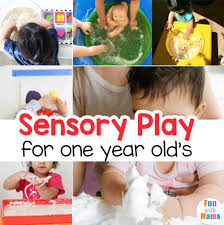
Soft Play Adventures for 1-Year-Olds: A World of Fun and Learning
Soft Play for 1-Year-Olds: A Guide to Safe and Fun Activities
Soft play areas are a fantastic way for 1-year-olds to explore, learn, and have fun in a safe environment. These specially designed spaces offer a range of activities that are perfect for little ones who are just beginning to discover the world around them.
The Benefits of Soft Play for 1-Year-Olds
Soft play areas provide numerous benefits for 1-year-olds, including:
- Physical Development: Soft play equipment helps toddlers develop their motor skills, coordination, and balance as they crawl, climb, and explore.
- Sensory Stimulation: The bright colours, different textures, and interactive elements in soft play areas stimulate a child’s senses and encourage sensory exploration.
- Social Interaction: Soft play allows 1-year-olds to interact with other children in a safe and supervised setting, helping them develop social skills and learn how to share and take turns.
- Cognitive Development: Through play, toddlers can enhance their problem-solving abilities, creativity, and imagination as they engage with various toys and activities.
Tips for Parents When Taking Their 1-Year-Olds to Soft Play Areas
Here are some tips to ensure a safe and enjoyable soft play experience for your 1-year-old:
- Supervision: Always keep a close eye on your child while they play to ensure their safety.
- Dress Appropriately: Dress your child in comfortable clothes that allow for easy movement.
- Clean Hands: Encourage your child to wash their hands before and after playing in the soft play area.
- Taking Turns: Teach your child about sharing and taking turns with other children during playtime.
In Conclusion
Soft play areas offer a wealth of benefits for 1-year-olds, providing them with a safe space to explore, learn, and have fun. By following some simple tips and guidelines, parents can ensure that their child’s soft play experience is both enjoyable and enriching.
We hope this guide has been helpful in understanding the importance of soft play for 1-year-olds. Let your little one dive into the world of soft play and watch as they grow, learn, and thrive!
Top Tips for a Safe and Enjoyable Soft Play Experience for 1-Year-Olds
- Ensure the soft play area is safe and free from any small objects that could be a choking hazard.
- Supervise your 1-year-old closely at all times to prevent accidents or injuries.
- Encourage your child to explore the soft play equipment at their own pace.
- Interact with your child during soft play to enhance their learning and development.
- Allow your child to socialize with other children in the soft play area to improve their social skills.
- Limit the time spent in the soft play area to prevent overstimulation or fatigue.
Ensure the soft play area is safe and free from any small objects that could be a choking hazard.
When setting up a soft play area for 1-year-olds, it is crucial to prioritise safety by ensuring that the space is free from any small objects that could pose a choking hazard. Little ones at this age are naturally curious and tend to explore the world by putting things in their mouths. By carefully inspecting the area and removing any potential choking hazards, such as small toys or loose parts, parents can create a secure environment where their child can play and learn without unnecessary risks. Remember, a safe soft play area is essential for fostering a positive and worry-free play experience for 1-year-olds.
Supervise your 1-year-old closely at all times to prevent accidents or injuries.
It is crucial to supervise your 1-year-old closely during soft play to prevent accidents or injuries. By keeping a watchful eye on your child, you can ensure their safety and intervene promptly if needed. Supervision is key to creating a secure environment where your little one can explore and play freely while giving you peace of mind knowing they are protected from potential risks.
Encourage your child to explore the soft play equipment at their own pace.
Encouraging your child to explore the soft play equipment at their own pace is key to fostering their independence and confidence. By allowing them the freedom to navigate the play area on their terms, you are supporting their natural curiosity and sense of exploration. This approach helps build their motor skills, spatial awareness, and decision-making abilities as they engage with the various elements of the soft play environment. Remember to provide gentle guidance and reassurance as they navigate through the space, allowing them to learn and grow in a safe and supportive setting.
Interact with your child during soft play to enhance their learning and development.
Interacting with your child during soft play is a wonderful way to enhance their learning and development. By engaging with them as they explore the soft play area, you can help them build their social skills, encourage their curiosity, and support their cognitive growth. Asking questions, playing together, and offering encouragement can all contribute to a rich and rewarding play experience for your 1-year-old. So, don’t hesitate to get down on the floor with them, join in the fun, and watch as they thrive in this stimulating environment.
Allow your child to socialize with other children in the soft play area to improve their social skills.
Encouraging your 1-year-old to socialize with other children in the soft play area is a wonderful way to enhance their social skills. Interacting with peers at a young age helps children learn important lessons in sharing, communication, and cooperation. By engaging in play with others, your child can develop empathy, build friendships, and gain confidence in social settings. Soft play areas provide a safe and supportive environment for little ones to interact and learn valuable social skills that will benefit them as they grow and navigate the world around them.
Limit the time spent in the soft play area to prevent overstimulation or fatigue.
It is important to limit the time your 1-year-old spends in the soft play area to prevent overstimulation or fatigue. While soft play can be a fun and engaging experience for young children, too much time in this environment can lead to sensory overload or tiredness. By setting reasonable time limits and observing your child for signs of exhaustion, you can ensure that their soft play experience remains enjoyable and beneficial without becoming overwhelming.


